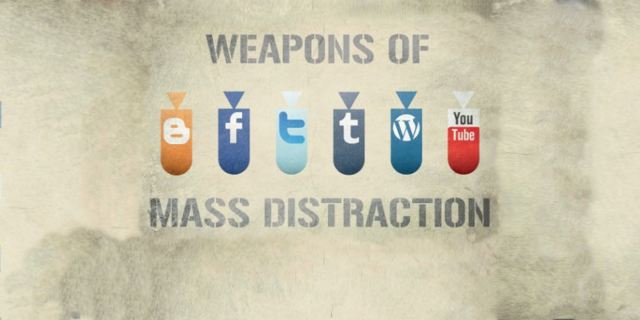By Emily Boston, via Wikimedia Commons

A few weeks ago, this column unpacked a story about the distracting effect of digital technology – and the lengths to which some tech people go to protecting themselves from their own products.
Given the impact of digital distractions on personal productivity, I wondered what it was doing to the economy as a whole:
“In theory, each individual has a choice about how much time they spend online. In practice, however, there will be an aggregate effect on productivity that affects us all.”
I’m not the only one to wonder. There’s a great post on the Bank of England’s Bank Underground blog, by Dan Nixon who notes the massive impact of digital on our daily lives:
“With the rise of smartphones in particular, the amount of stimuli competing for our attention throughout the day has exploded. A survey from 2013 found that we check our phones 150 times per day, or roughly once every 6½ mins; a more recent study found that the average smartphone user spends around 2½ hours each day on his or her phone, spread across 76 sessions.”
Is this having a measurable economic impact?
“The most obvious place to look would be in productivity growth, which has been persistently weak across advanced economies over the past decade (during which time, as it happens, global shipments of smartphones have risen roughly ten-fold).”
Is this a coincidence or a causal link? Nixon acknowledges the difficulty of “observing inner states (attention) and mapping these to outcomes (productivity)” – and of separating out any direct effect from other productivity-damaging factors (the global financial crisis being the most obvious example).
Nevertheless, there are causes for concern:
“Surveys offer estimates of the time workers spend ‘cyberslacking’ – using the Internet and mobile technology during work hours for personal purposes. The US Chamber of Commerce Foundation finds that people typically spend one hour of their workday on social media – rising to 1.8 hours for millennials.”
A compounding factor is that distracted minds tend to stay distracted:
“…workers who get interrupted by external stimuli (e.g. message notifications) are significantly more likely to later go on to ‘self-interrupt’ – stop what they’re doing and switch to something else before reaching a break point. In other words, if you keep getting distracted by external stimuli, your mind’s more likely to wander off on its own accord.”
However, if all of that is true then employers are just as much to blame as employees. Open-plan offices and email were distracting workers long before the smartphones became ubiquitous. Indeed, many employers are themselves the origin of the electronic messages that are the enemy of focus in the workplace.
I once visited the offices of a well-known publication. The main working area was open-plan, of course, and towering over everyone was a giant screen displaying real-time data on the most-read (or, at least, most clicked-on) articles on the publication’s website. Not only did this provide an incentive to produce ‘clickbait’, it also couldn’t have been better designed to distract a writer at work.
Dan Dixon describes the efforts of some employers to turn back the clock to when workers could concentrate on the job at hand. This could be a winning shift in strategy.
Going digital and open-plan was meant to boost productivity. The expulsion of most secretaries – those great defenders against distraction – was billed as another triumph of efficiency. And yet the decades over which most of this happened are those in which productivity gains have declined.
It’s almost as if productivity is not a function of bean-counting ‘efficiency’, but of human creativity – which in turn requires the space and time for focused thought.










Join the discussion
Join like minded readers that support our journalism by becoming a paid subscriber
To join the discussion in the comments, become a paid subscriber.
Join like minded readers that support our journalism, read unlimited articles and enjoy other subscriber-only benefits.
Subscribe